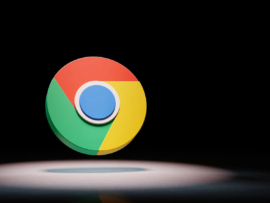
AI-powered search startup Perplexity has made an audacious $34.5 billion offer to buy Google’s Chrome browser, a bid that far exceeds the company’s own $18 billion valuation.
The unsolicited proposal comes as Google faces mounting pressure from US regulators to loosen its grip on the search market. Last year, a federal judge ruled that Google illegally monopolized online search, and the US Department of Justice (DOJ) has suggested that selling Chrome could help level the playing field.
Perplexity confirmed to The Wall Street Journal that multiple large venture capital funds have agreed to finance the deal in full. The startup said the proposal is “designed to satisfy an antitrust remedy in highest public interest by placing Chrome with a capable, independent operator,” per The Journal’s report.
Estimates of Chrome’s market value range between $20 billion and $50 billion, making Perplexity’s $34.5 billion bid a competitive, though still ambitious, offer.
The antitrust context
The offer lands at a delicate time for Google. US District Judge Amit Mehta is reviewing potential remedies after ruling last year that the search giant illegally monopolized the online search market. One option under consideration is forcing Google to divest Chrome.
In a filing, the DOJ said divesting Chrome would “permanently stop Google’s control of this critical search access point and allow rival search engines the ability to access the browser that for many users is a gateway to the internet.”
Chrome is no small asset; the browser has roughly 3.5 billion users and dominates more than 60% of the global market, according to industry estimates. Judge Mehta is expected to announce his decision this month.
Google’s stance about selling Chrome
Browsers have become key battlegrounds in the AI era; they not only control access to search traffic but also generate valuable user data for advertising and personalization. Both OpenAI and Yahoo have reportedly expressed interest in Chrome should it hit the market.
Google has given no indication it’s willing to sell Chrome. In earlier testimony, Google CEO Sundar Pichai argued that being forced to divest the browser or share data with rivals would “harm Google’s business” and pose “security risks.”
“It’s very possible that [Judge Mehta] would hold off on requiring a sale until the appeals process is worked out,” Herbert Hovenkamp, a professor at the University of Pennsylvania Carey Law School, told Reuters.
Many see Perplexity’s bid as a strategic statement rather than a likely transaction, aimed at signaling to the court and the public that a motivated buyer exists if regulators demand a sale. Such a public offer also keeps Perplexity in the spotlight at a time when AI firms are vying for influence, partnerships, and market share.
Other recent big moves from Perplexity
This isn’t the first time Perplexity has made a high-profile acquisition attempt. Earlier this year, the startup reportedly explored a merger with TikTok amid concerns over the app’s Chinese ownership.
Perplexity has also been expanding its own products, recently launching an AI-powered browser called Comet. But acquiring Chrome would instantly give it access to billions of users, something that could supercharge its competition with AI rivals like OpenAI.
During Google’s antitrust trial, ChatGPT product lead Nick Turley stated OpenAI would be interested in buying Chrome and creating an “AI-first” browsing experience.





